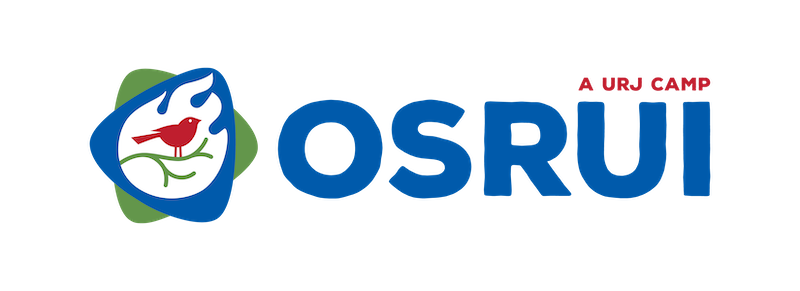by Rabbi Lisa Greene of North Shore Congregation Israel in Glencoe, IL. Rabbi Greene served as faculty for Kallah Aleph and wrote this for the NSCI Bulletin upon her return.
I just returned from camp. After an exciting two-week stint as faculty for the youngest unit of OSRUI (Olin-Sang-Ruby Union Institute), Kallah Aleph, I am home working on recovering my voice, happily reflecting on what I taught and what I learned. As usual, I set out to teach campers and counselors, and ended up learning from them as much or, more likely, more than I taught them.
Our theme this session was biblical archeology. What, you might ask? Biblical archeology with 8- to 10- year-olds in Oconomowoc, Wisconsin?! Indeed. We made a tel (an archeological mound layered with levels of civilizations) at camp and our campers set out to learn about sites in Israel, ancient and modern. Campers were guided by an outstanding team: our protagonist counselor/actor/teachers, dubbed Yisraeliana & Jones, and cabin counselors who guided their groups through the interactive learning which my faculty partner, Anne Stein, Educator of Congregation Etz Chaim of Lombard, Illinois, and I prepared them for in advance of each session.
Oconomowoc, Wisconsin?! Indeed. We made a tel (an archeological mound layered with levels of civilizations) at camp and our campers set out to learn about sites in Israel, ancient and modern. Campers were guided by an outstanding team: our protagonist counselor/actor/teachers, dubbed Yisraeliana & Jones, and cabin counselors who guided their groups through the interactive learning which my faculty partner, Anne Stein, Educator of Congregation Etz Chaim of Lombard, Illinois, and I prepared them for in advance of each session.
First, campers learned about one site and made artifacts that might be found there. Then, the archeological teams buried those artifacts for another group to find and were, themselves, assigned a new site to dig up and glean information about which to learn. Cabins then dug up their new sites and drew conclusions as best they could with their new artifacts. As well, they received basic facts about their new sites to help them ground their work. Each group learned at least one biblical citation that grounded their site in TaNaKh, our Hebrew Bible.
It was great! The campers literally got dirty and got digging in their sites, mapped out on a grid laid out like the map of Israel. Needless to say, burying and digging was a big hit. We had shovels and buckets, screens and paint brushes for dusting off. We had rulers and recording sheets for transcribing data about artifacts. Comments heard along the way sounded something like these:
“I buried that mosaic whole – they found it broken!”
“We buried the golden calf at Tel Dan, but they never dug it up.”
“Look, we found the ancient Hebrew alphabet on this paper (aka parchment).”
“Did you see the altar we made?”
“There’s Meggido!”
“No, we dug up Jerusalem, not Jaffa!”
“I can’t find that last piece of this broken pot – look, I glued the rest back together.”
Indeed our young campers worked hard and made observations that to them were novel and eye-opening, if seemingly basic to the adult eye or ear. Not to them! Think about it – a 10-year-old seeing that archeologists pull in many sources of information to glean what artifacts are or might be. A 9-year-old realizing that what is found is rarely whole. An 8-year-old recognizing that this digging and finding thing is hard work. And, a hot, sweaty group of young children beginning to understand the power of archeology and Bible to teach us about our Jewish history in a current context. My takeaways? You just can’t beat Jewish camping for learning and identity formation. You certainly can’t beat informal, interactive education in the fun, active learning department. And, a little digging goes a long way.
Digging can be actual, and metaphorical. It’s about exploring. It’s about finding out. It’s about getting or learning somewhere new. Whether we physically dig, intellectually dig or spiritually dig, all of us can do it. So, summer’s still here. Whether we’re at an archeological site, in a garden or at the beach with a book, within our souls asking tough questions, or at Shabbat services outside with new perspective, we all have the potential to dig. Yes, it’s hard work. Yes, we often find fragments. We may find obvious conclusions or deep truths. Or, we just may learn a bit more about ourselves as Jews, as people.
When I was a child at the Jersey Shore, my Grandpa Arthur would joke that we could dig our holes all the way to China. While we knew he was kidding, still he got us thinking and we kept digging. In jest or with seriousness, we all need a bit of encouragement to dig deep down. Summer’s still here. Join me in thinking and digging. Let me know what you find!
Reprinted with permission from the NSCI Bulletin, August 2011.
